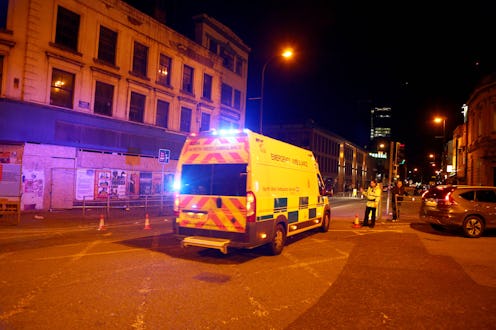News
Ohio City Councilman Wants To Ignore 9-1-1 Calls From Repeat Drug Users

About 1 out of 10 ambulance runs in Middletown, Ohio, this year were for opioid overdoses, the volume already eclipsing the total number of EMS responses in 2016 alone. Middletown city council member Dan Picard introduced a solution for the alarming rate of drug overdoses in Ohio: Stop responding to 911 calls from repeat offenders.
More specifically, Picard proposed a three-strikes-and-you're-out policy. In an effort to curb the city's growing medical bill, he wants to advise EMS dispatchers to cut off services and not send out an ambulance to callers who have already received services twice for drug overdose.
"I want people to be scared of coming to Middletown and overdosing."
Last year, Middletown spent $11,000 on Narcan, a medication that blocks the effects of opioids and can reverse overdose. The city has exceeded this expenditure in the past two months alone, spending $16,000 on the opiate antidote.
Middletown Fire Chief Paul Lolli, however, told local paper the Journal-News that medics took an oath to take care of people who are hurt, sick, or injured regardless of cost, and that medics operate under standing orders from the Division of Fire's medical director unless directed otherwise. Lolli also said that Picard's suggestion would put the city and medical director at risk for liability issues.
Picard told WHIO-TV that the city is losing the War on Drugs and most of the arrested drug offenders are "transients." Rather than spend taxpayer money and resources, he suggested community service over arrests — noting that transients are unlikely to show up, anyway — and striking fear in drug abusers.
"I want people to be scared of coming to Middletown and overdosing, " Picard said in the statement. "If they want to come to Middletown and buy drugs and leave town, I'm not that concerned about it. I'm concerned about them overdosing in Middletown and running up our costs."
Middletown is one of many cities across the United States that is struggling with the opioid epidemic, which is most concentrated in rural Appalachia, New England, and parts of the Midwest.
Drug overdose deaths from prescription opioids, heroin, and fentanyl (a potent anesthesia) have reached an all-time high. The nationwide addiction has its origins in the painkiller boom of the 1990s and 2000s, when both the number of pill prescriptions and pill potency increased.
Aside from moral obligation, Middletown's fire department is required by law to administer Narcan if they receive an overdose call, so the city seems unlikely to put Picard's three-strikes plan into action. In the meantime, the city fire department is applying for grants and accepting donations to fund more Narcan after the city exceeded its budget for the life-saving medication.
The Columbus Dispatch has described "compassion fatigue" as a new facet to Ohio's persistent opioid problem, a growing disillusionment toward reviving drug addicts. Dr. Joshua M. Sharfstein, an associate dean at Johns Hopkins Bloomberg School of Public Health, told the newspaper that while saving lives is important, the next important step is recovery treatment.
Frankly, if you are just doing Narcan it's likely you'll have to go out again because it's important to do, because you're saving their life, but it's also important to have the next step ... what are we doing to engage them in treatment?